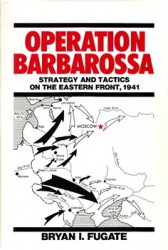Published in An Arab-Syrian Gentleman and Warrior in the Period of the Crusades: Memoirs of Usamah ibn Munqidh, 1987
"When one comes to recount cases regarding the Franks, he cannot but glorify Allah (exalted is he!) and sanctify him, for he sees them as animals possessing the virtues of courage and fighting, but nothing else."
In 1095, armies from Western Europe marched on Palestine, intent on gaining control of the Holy Land—that is, the area where most of the events recorded in the Bible took place. Standing in their way were the Muslims who controlled the area. The Muslim or Islamic faith has much in common with Christianity and Judaism, including its respect for many of the people and places referred to in the Old and New testaments.
For centuries, Christians who wanted to visit the holy sites had done so without interference, but once the area came under the control of the Turks, a people who came ultimately from the grasslands of Central Asia, things began to change. Not only were the Turks less willing to allow Christian pilgrims to enter the Holy Land, but European leaders— including the pope, the leader of Roman Catholic Christianity—desired to gain control of Palestine for themselves.
The First Crusade (1095-99) ended in success for the Europeans, with the capture of Jerusalem and the establishment of four European-controlled "crusader" states throughout the area of modern-day Israel, Lebanon, and Syria. Many
Usamah ibn Munqidh

The story of the Crusades, the "holy wars" by which Western Europeans tried to gain control of Palestine, is usually told from the perspective of the European invaders. Thus the autobiography or life story written by Usamah ibn Munqidh, a Muslim defender, offers a fresh perspective.
Usamah served as a soldier and administrator under Nur ad-Din (NOOR ed-DEEN; 1118-1174), the sultan or ruler of Egypt and Syria. After living in Egypt for a time, he returned to his home in Palestine and asked the sultan for his permission to move his family back. Nur ad-Din agreed, and arranged a letter of safe passage, which should have guaranteed that the family's ship would face no danger from the European invaders. Indeed, Usamah recalled that "the Frankish king"—the leader of the Europeans in the region—had
Agreed to the safe passage. But when the ship neared its destination, a group of European pirates attacked the ship with the blessings of the "Frankish king."
The pirates robbed Usamah's family of almost everything. Later he wrote, "Compared with the safety of my sons, my brother, and our women, the loss of the rest meant little to me, except for my books. There had been 4,000 fine volumes on board, and their destruction has been a cruel loss to me for the rest of my life." Usamah had a long life in which to remember: at a time when the average life expectancy in Western Europe was no more than thirty years, he lived to the ripe old age of ninety-three. Despite his bad experiences with the "Franks," he developed many friendships with Europeans, as he recounted in his autobiography, written about 1175.
Of the Muslims who lived in the region, who were Arab rather than Turkish, looked down on the Western Europeans and, like the Byzantines of Greece, referred to them as "Franks." Again like the Byzantines, the Arabs viewed the "Franks" from the perspective of their own highly developed civilization, which had yielded enormous progress in science, mathematics, and the arts over the preceding centuries.
The "Franks" may have been unwashed barbarians, or uncivilized people, in the view of the Arabs, but in the time of Usamah ibn Munqidh (oo-SAH-muh EEB'n moon-KEED; 1095-1188), it seemed that they were there to stay. By then, the principal Muslim force in the Middle East was no longer the Turks; rather, power had shifted to the Fatimid dynasty in

Arab astronomers. Compared to Western Europe, Arab civilizations were very advanced in scientific fields in the Middle Ages. Reproduced by permission of the New York Public Library Picture Collection.
Egypt, under which Usamah served as a soldier and administrator. In his Memoirs, or life story, Usamah offered a fascinating portrait of the uneasy relationship between the Arabs and the Christians who had settled in Palestine.




 World History
World History









